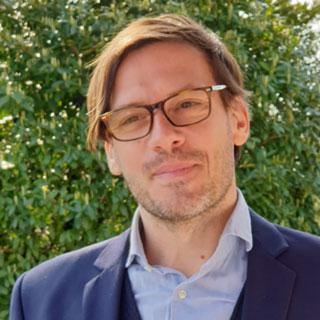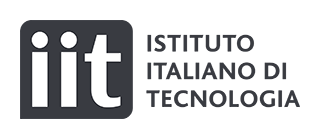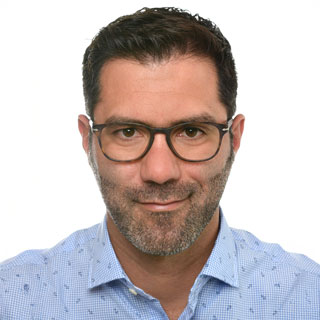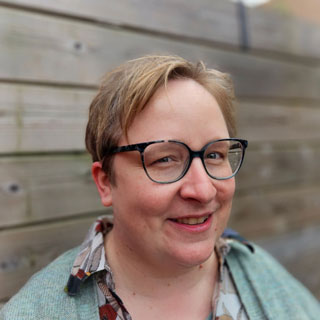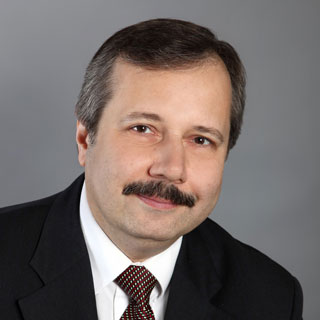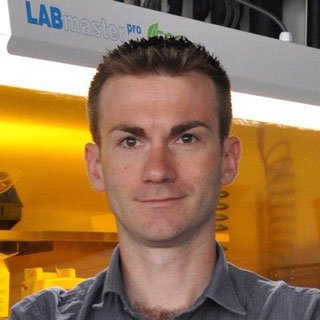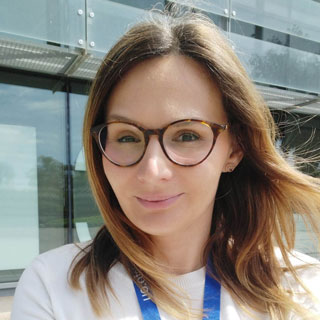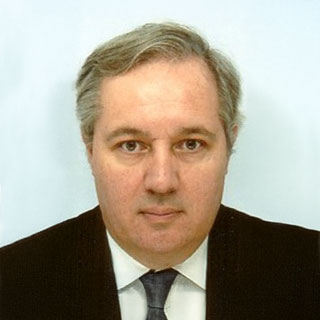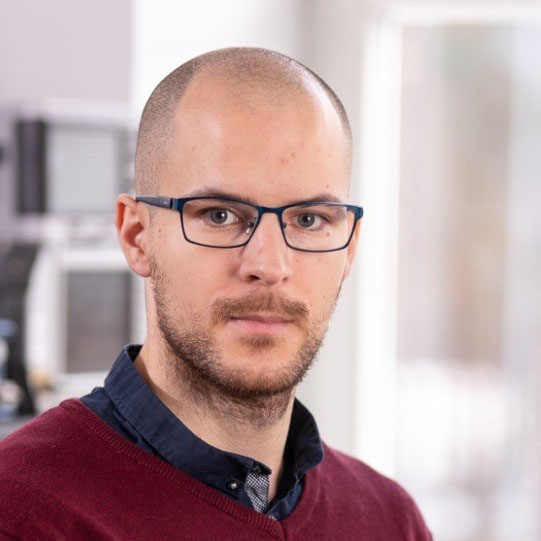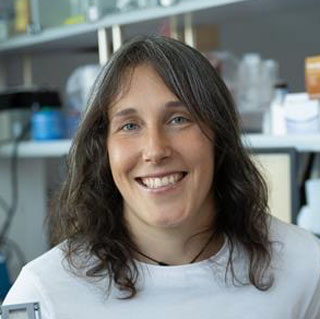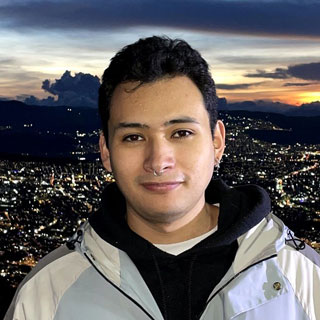People

Denis Garoli
Denis Garoli is associate professor at University of Modena and Reggio Emilia and senior researcher at the Italian Institute of Technology where he works on the fabrication of plasmonic nanopores for enhanced spectroscopies. Prof. Garoli obtained his PhD degree from the University of Padova (2008). His main interests are nanophotonics, plasmonics, DNA nanotechnology, nanoscopy, single-molecule techniques and sensing. During the period 2016-2019, he co-coordinated the FET-Open ProseqO project on Single-molecule sequencing by means of the plasmonic nanopore. Now, he is the co-coordinator of the H2020-FET Open DNA-Fairylight project and coordinator of Horizon EU Marie-Curie Network "DYNAMO". He is the coordinator of 3D-BRICKS.
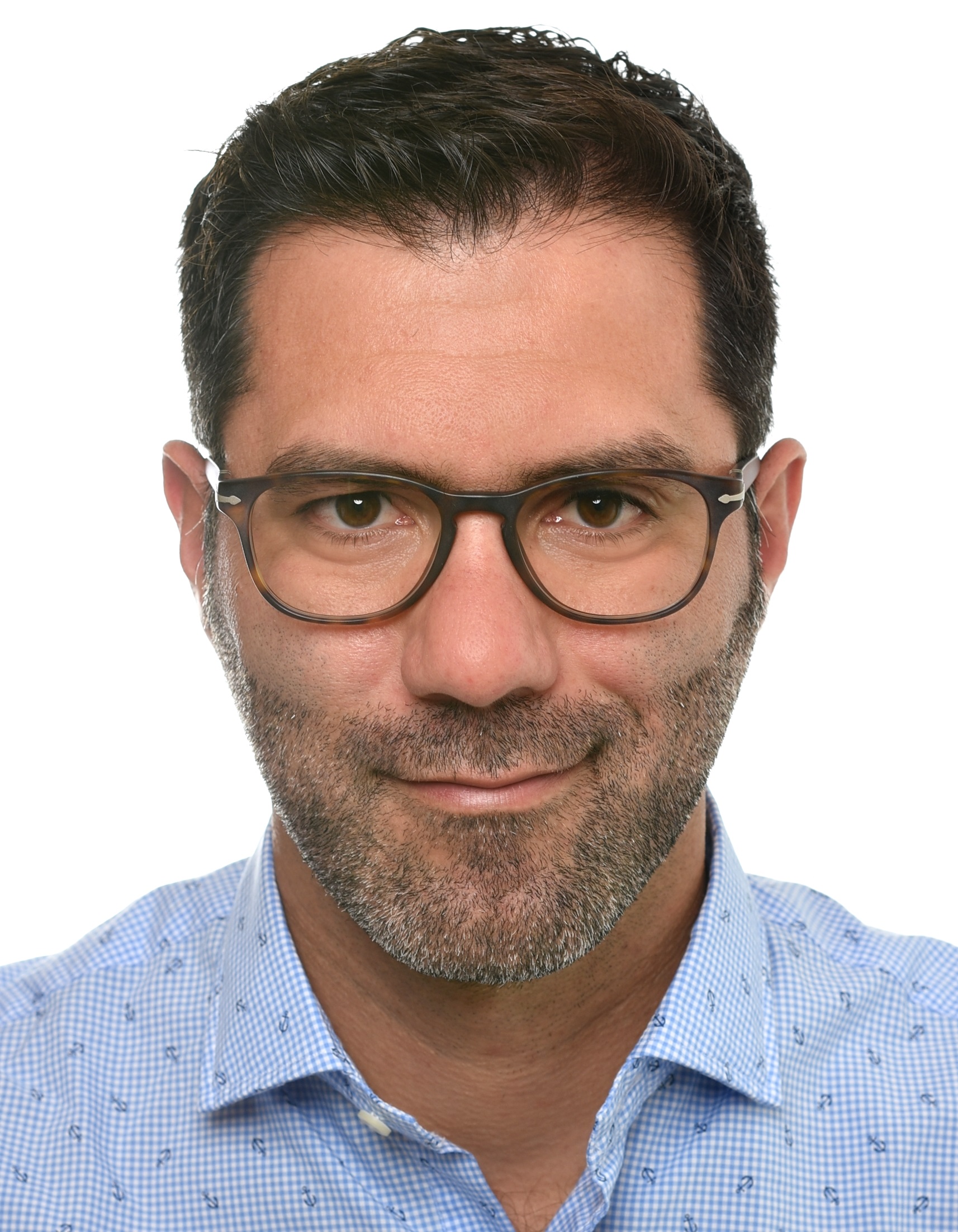
Guillermo Acuna
Since 2018 Guillermo Pedro Acuna is a Full Professor at the Physics department of the University of Fribourg where he leads the Photonic Nanosystems group. He has pioneered the use of the DNA origami technique for nanophotonics focusing on the fabrication of optical antennas for enhanced spectroscopies. Prof. Acuna obtained his Physics diploma at the Universidad de Buenos Aires (2005) and his PhD degree at the LMU München (2010) under the supervision of Prof. Roland Kersting. He has done a Post-Doc at Prof. Hermann Gaub´s chair for Bio-physics at the LMU München (2010). From 2011 till 2017 he was group leader at Prof. Philip Tinnefeld´s chair at the Technical University of Braunschweig. In 2018, Prof. Acuna obtained a Full Professor (W3) position at the University of Rostock. His main interests are nanophotonics, plasmonics, DNA nanotechnology, nanoscopy, single molecule techniques and sensing.
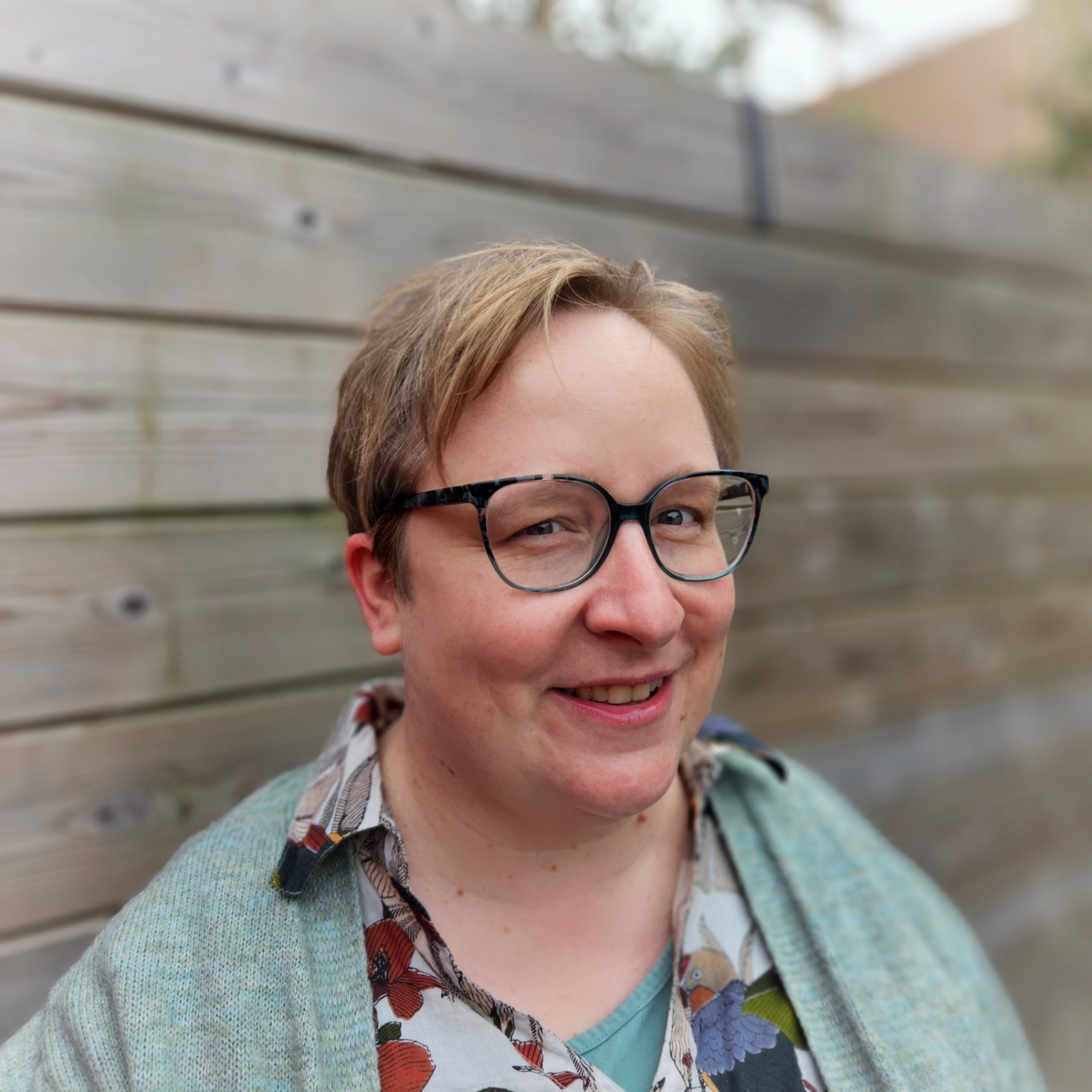
Sofie Cambrè
Sofie Cambré received her PhD in Physics at the University of Antwerp in Belgium in 2008. Afterwards she conducted postdoctoral research at the University of Antwerp, the University of Bordeaux (France) and the Center of Integrated Nanotechnologies at the Los alamos National Laboratory (USA). She is currently an associate research professor at the University of Antwerp. Together with colleague S. van Doorslaer she manages the UAntwerp EPR facility. My research focuses on optical and magnetic resonance spectroscopy (combined with optical and electrical detection in ODMR resp. EDMR) of a wide range of materials, in particular SiC and carbon nanotubes. She in particular focuses on the development of new nanohybrids of carbon nanotubes by filling them with a wide range of materials, which was the topic of her 2016 ERC Starting Grant.
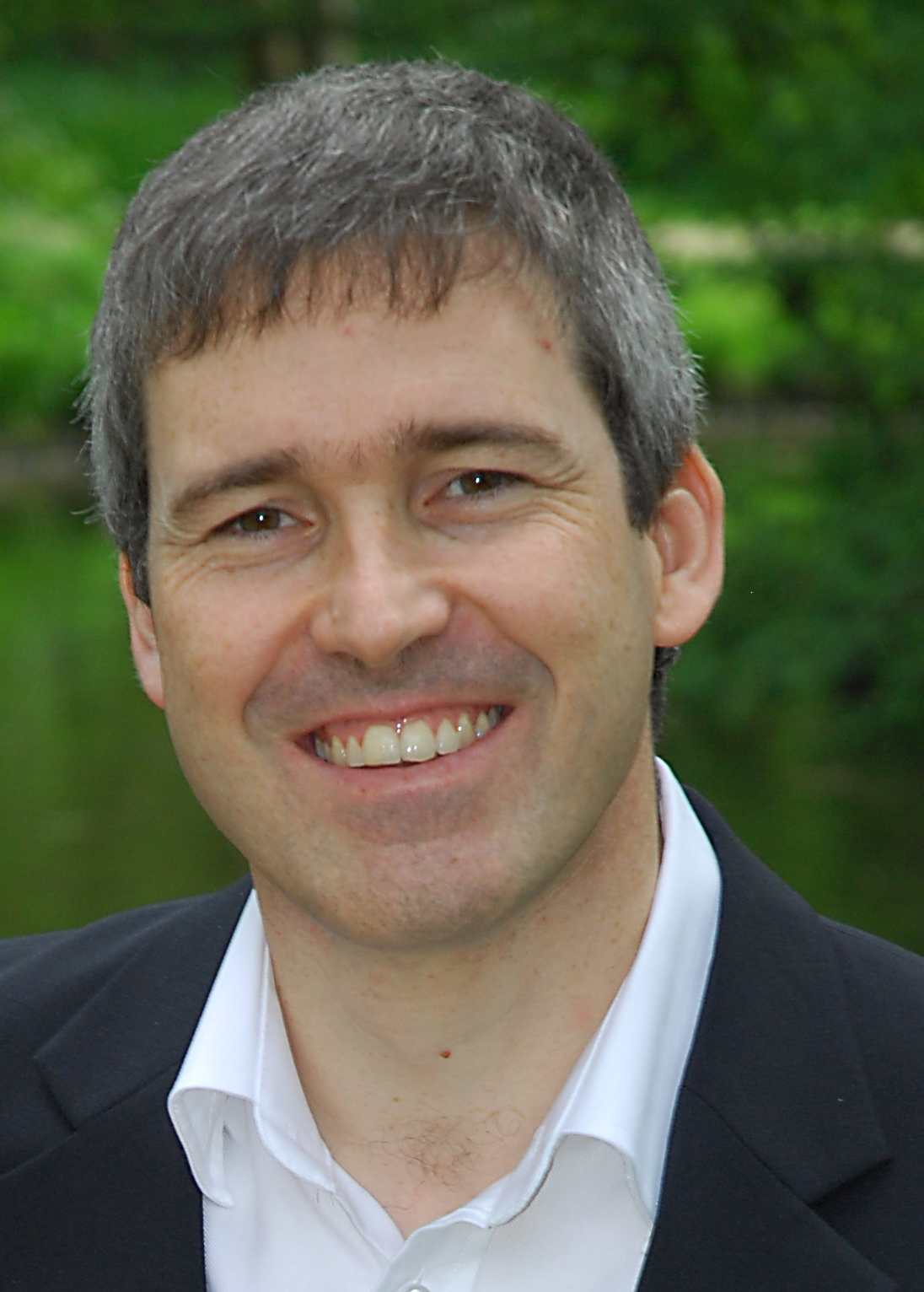
Wim Wenseleers
Wim Wenseleers is a professor in Physics at the University of Antwerp, where he is currently leading the Nanostructured and Organic Optical and Electronic Materials (NANOrOPT) group. He obtained his PhD at the University of Antwerp in 1999, after which he was appointed as a research associate at the University of Arizona (Department of Chemistry and Optical Sciences Center). In 2008 he was appointed a tenure track research professor position at the University of Antwerp, and got tenured in 2011. His research includes the investigation of organic molecules for nonlinear optics and the preparation (solubilisation, filling, and sorting) and spectroscopy of carbon nanotubes and other nanostructured materials. His main expertise is in the development of
experimental setups for optical spectroscopy, such as IR fluorescence excitation spectroscopy, nonlinear light scattering, and Raman spectroscopy using widely wavelength-tunable laser systems.
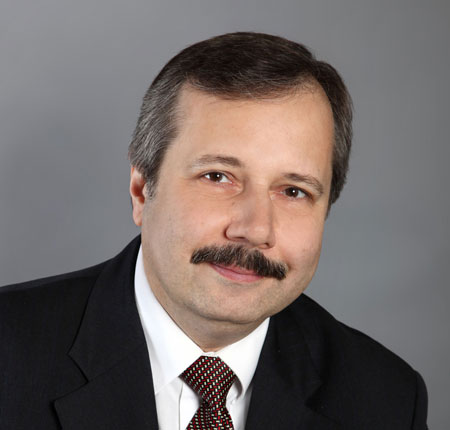
Roland Wiesendanger
Roland Wiesendanger is professor of Experimental Physics at the University of Hamburg since 1993. His scientific interests are focused on nanoscience and nanotechnology. He has published more than 650 scientific articles, review papers and book chapters which have been cited more than 40.000 times. He is author of two textbooks and editor of nine books and eight conference proceedings. He has presented 600 invited talks at international conferences, universities, and research institutes. He is a member of numerous scientific societies and has received numerous prizes and awards.

Benjamin Flavel
Benjamin S. Flavel obtained both a B.Sc. (Hons) and Ph.D. in Nanotechnology at the Flinders University of South Australia and completed a Habilitation in Materials Science at the Technical University Darmstadt. He has received research fellowships from the Australian Government’s Endeavour Program, the Alexander von Humboldt Foundation and is the recipient of both the Emmy Noether and Heisenberg programs from the German Research Foundation (DFG). He is currently a Group Leader at the Institute of Nanotechnology, Karlsruhe Institute of Technology where he pursues his research interests of carbon nanotube separation and their integration into devices for optics, electronics and energy.
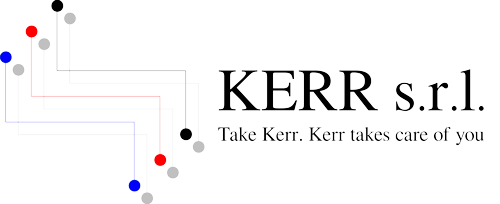
Andrea Stona
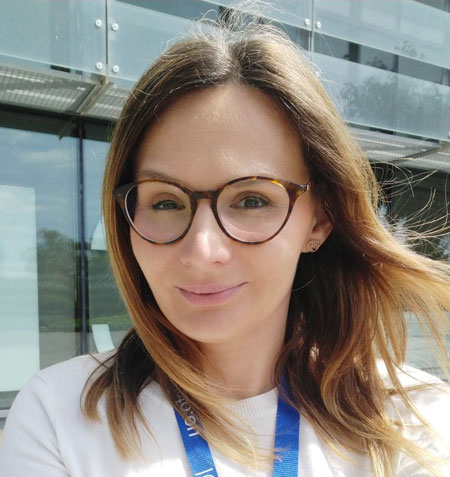
Dr Marianna Sledzinska
Dr. Marianna Sledzinska is a Research Engineer in the groupof Thermal Properties of Nanoscale Materials in ICN2. She received her PhD in Physics from Universitat Autónoma de Barcelona in 2012. She has more than 10 years of cleanroom experience in fabricating 2D material-structures and photonic/phononic crystals, structural and optical characterization and thermal and electrical transport on the nanoscale. She was involved in several EU and national projects linked to thermal properties of nanomaterials. She is currently involved in the research related to 2D materials thermal and sensing applications, monitoring strain and defects on the nanoscale and development of novel fabrication techniques.
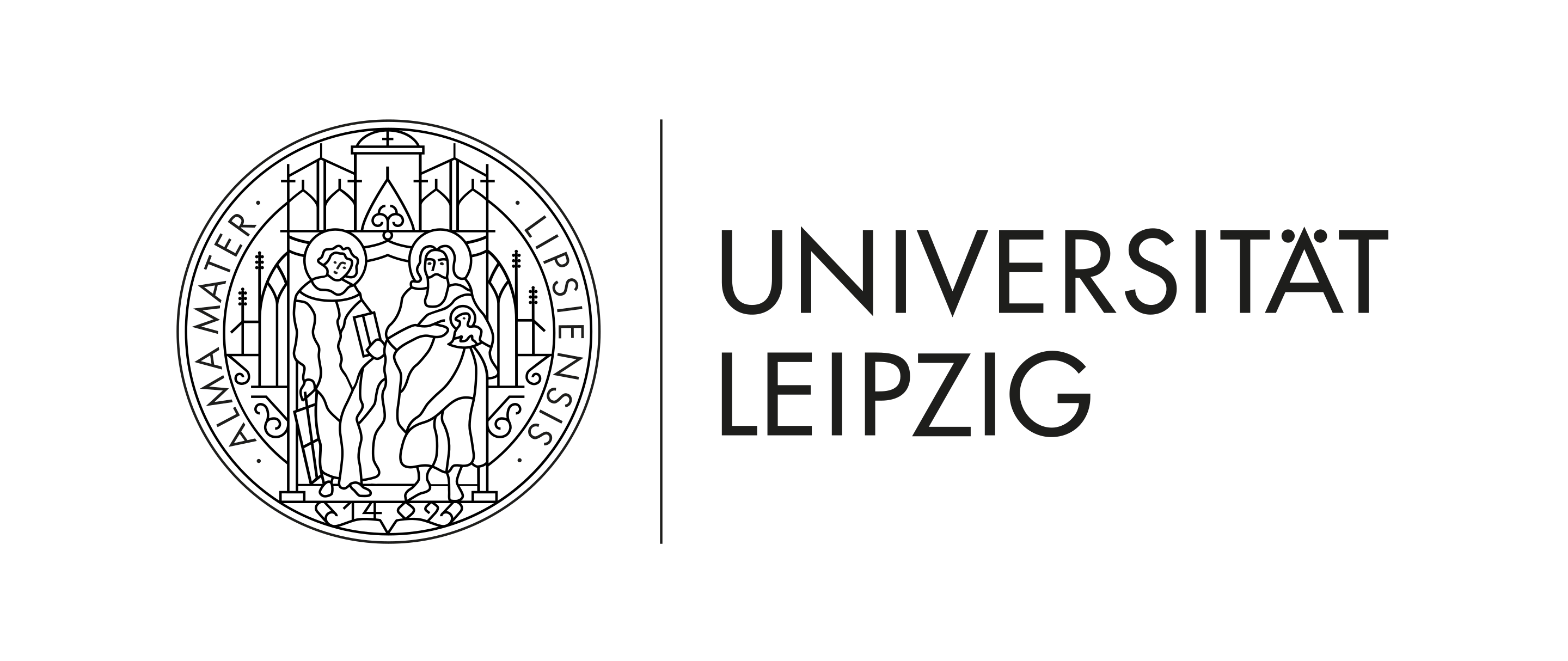
Ralf Seidel
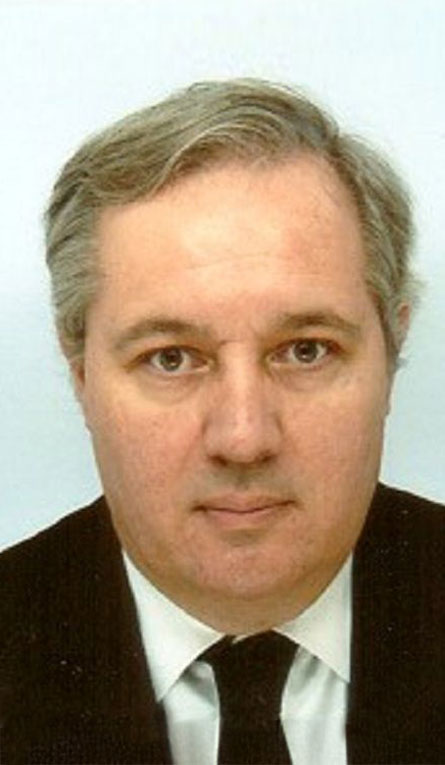
Bojan Boskovic
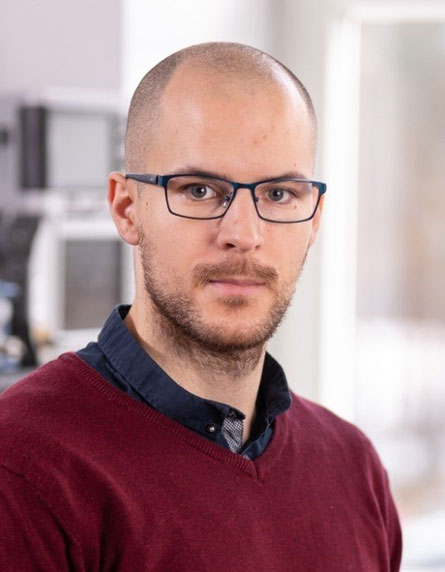
Tamás Pardy
Tamás Pardy is currently a Senior Researcher at Tallinn University of Technology. He received his Ph.D. degree in electronics and telecommunication from Tallinn University of Technology, Tallinn, Estonia, in 2018. He has over 10 years of experience in biomedical electronics from industrial development and academic research, particularly in Point-of-Care test device design and development. He has been the lead engineer of the Multitest, Europe’s first CE-marked pocket PCR device from Selfdiagnostics Deutschland GmbH, as well as the CogniFlow platform, the modular, highly automated microfluidic droplet generation and analysis platform developed at Tallinn University of Technology. He has participated in several national/regional (Estonia and Germany) and European grants linked to the Multitest and CogniFlow platforms. His current research interest includes flow- and temperature control of lab-on-a-chip devices.
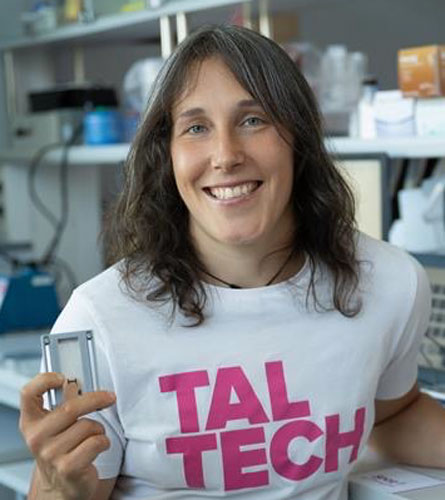
Simona Bartkova
Simona Bartkova Ph.D. Researcher at Tallinn University of Technology, Department of Chemistry and Biotechnology. Part of the microfluidics group lead by Prof. Ott Scheler. Main expertise include droplet microfluidics, micro-and molecular biology, micro-and nanoplastic, imaging, and image analysis via software. Research background is highly international and interdisciplinary, involving bachelors in the united states, masters in Sweden, and PhD in Denmark. Have worked in many different areas such as microbial pathogens and infections, microfluidics systems, microplastics, DNA extraction and sequencing, PCR and qPCR primer design, fluorescence imaging, image analysis, aquaculture, tick borne diseases, and environmental toxicology. Speak seven languages (four fluently).
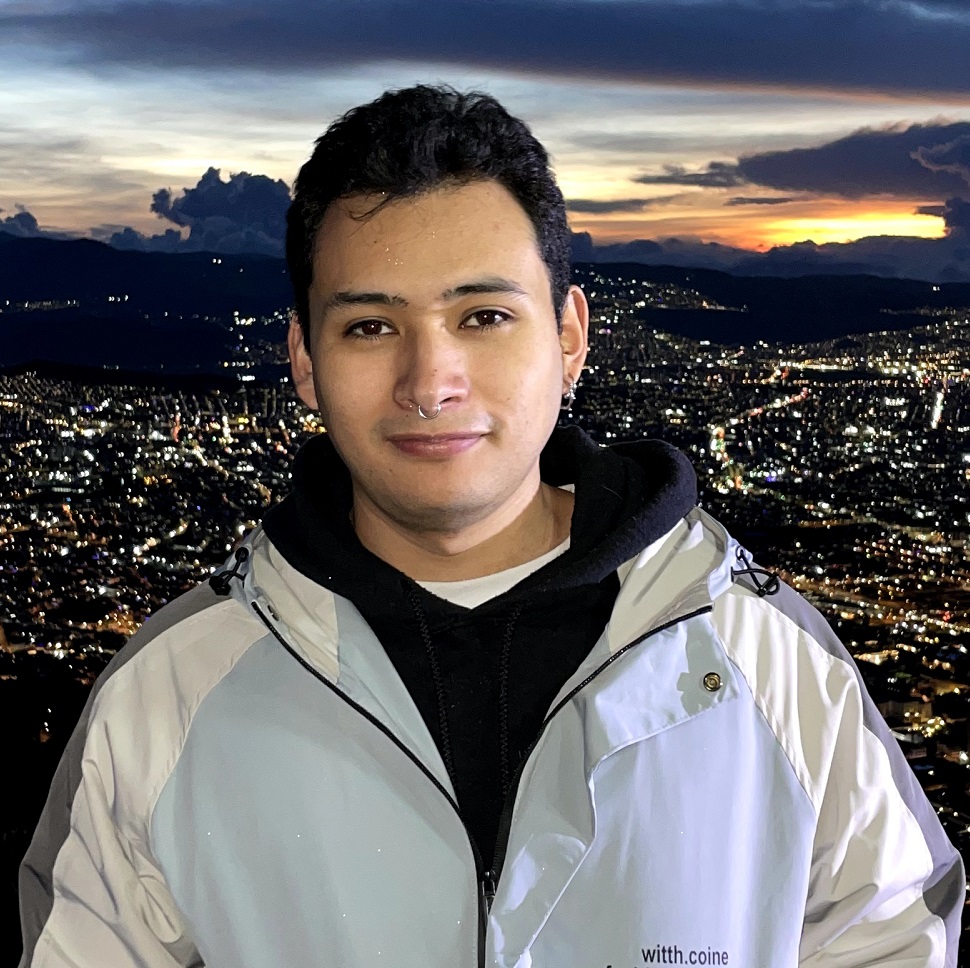
Cristian Borja
Cristian Borja is a PhD student at the University of Antwerp. His research will focus on the endohedral functionalization of single-walled carbon nanotubes, using several electron donor and acceptor molecules to accomplish stable doping. He also will carry on the characterization of the filled carbon nanotubes using different optical spectroscopy techniques.
Cristian received his BSc and MSc in Physics from Universidad de Los Andes, Bogota, Colombia. He has experience modelling strongly correlated electron systems and has an experimental background working with atmospheric muon detection and also working with graphene for solar cell applications. His interests include macroscopic quantum phenomena, applied physics, and tuning physical properties of low-dimensional materials.
